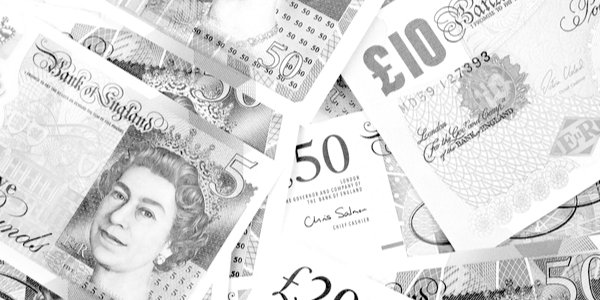EVERY day is a bank holiday in the East Sussex town of Bexhill-on-Sea. That’s because every major bank branch has closed. A friend who distributes posters to retail outlets in the town, stating ‘cash welcome here’, often writes to any businesses that decide to accept card payments only. Last week he received this rationale from the Côte restaurant chain:
‘During Covid we spoke to a number of our guests about removing cash and they told us that given the focus on hygiene that they would prefer us to only take card payments. At this point we removed all cash from our businesses. We have also suffered from a massive reduction in the available local banking services with many banks removing branches from the areas where we have restaurants. This has made it more difficult, more costly and less safe for our teams to be able to get cash to the restaurants. I understand that this can be frustrating for some, but it has enabled us to trade throughout the pandemic and beyond.’
Unsatisfied with this reasoning, my friend responded:
‘Côte has a well-deserved reputation for serving delicious, contemporary French food in a setting which is redolent of a typical French brasserie, however the irony is that the company’s payment policy would be illegal in France itself. Under article 642-3 of the penal code, it is illegal for traders to refuse cash payments in lawful currency and is punishable by a fine. I would be grateful if the executive management would reconsider its payment policy, not just because it is discriminatory to customers but also because of the benefit the cash option affords the company as a hedge against rising bank card charges and system failure.’
It is interesting that Côte used hygiene as justification: this is the hallmark of totalitarian regimes, which divide people into clean (compliant) and unclean (dissidents). Indeed, stopping cash transactions was a clear illustration of how covid was used to take a giant stride towards the technocratic Great Reset. Even if there was a novel respiratory disease, it’s stretching the science of virology for microbes to adhere to coins or polymer notes.
Use of cash has increased significantly since relaxation of the covid regime. However, people have become accustomed to using their bank card to make payments for anything and everything. Many have little or no cash in their purse or wallet. This is a problem when wireless technology fails.
Last Saturday, a technical fault at Sainsbury’s prevented contactless payments in its supermarkets. Chip-and-pin payments were not disrupted: customers could still pay with their card by tapping in their personal identification number. But the shutdown was a warning against abandoning tangible currency and relying on the internet.
In Scandinavia, the rush for digital has been watched closely by the popular blogger known as Peter Sweden, whose country is at the vanguard of the use of implanted microchips for identification and purchasing. A national identity system, already in operation in Sweden, will be intertwined with a central bank digital currency, giving the authorities total control over citizens’ spending.
In Australia, as Rod Lampard warned on the Daily Declaration website, a cashless society is ripe for a surveillance state. The Labor administration promotes digital identity as ‘secure, convenient and inclusive’. But forcing citizens on to a digital control grid is paradoxically unsafe, inconvenient and exclusive for ordinary people who by fault or misfortune cannot access their means of sustenance. The real purpose is a social credit system, as imposed in communist China.
Yet the Swedish government has recently legislated to protect cash, and Norway is going the same way. Following a survey by the Norwegian Financial Supervisory Authority in 2021 finding that many banks had withdrawn cash services, and a ‘cash crisis’ in May 2022 when card terminals across the nation were inoperable for several hours, the Norwegian government intends to force shops to accept cash as payment. The only exceptions in the new law will be vending machines, unmanned shops and sales of more than 20,000 krone (about £1,800). Emilie Enger Mehl, minister for Justice and Public Security, said: ‘The role of the government is to secure the preparedness of society. To only base oneself on digital payment system increases the vulnerability of society.’
In seemingly backtracking on withdrawal of cash, I wonder whether the powers-that-be know something that we don’t. World Economic Forum leader Klaus Schwab has warned of a cyber catastrophe that will make covid seem like a picnic in the park. If a widespread electronic blackout occurs, shops and customers would lose the means to buy and sell. Unless, of course, they retain physical money. It should be obvious by now that everyone should prepare for a major digital shutdown by securing a stash of cash.
It may be convenient simply to wave your card at the human or automated till, but the more that cash is removed from our daily lives, the more we are prone to the globalists in their quest for total control of population and resources. Use it or lose it.

